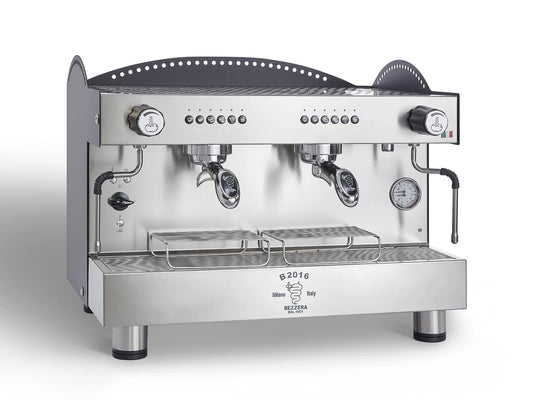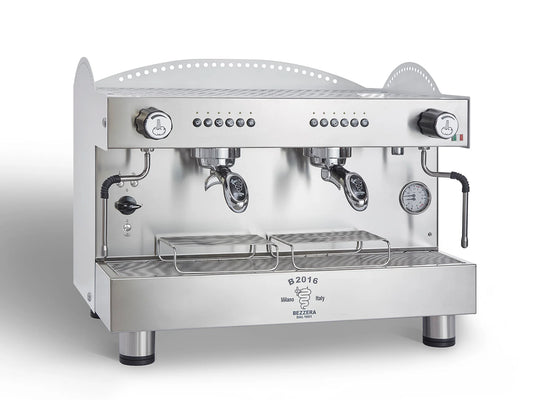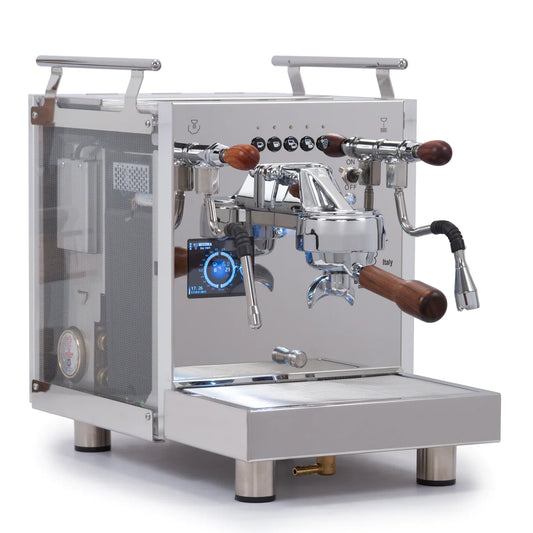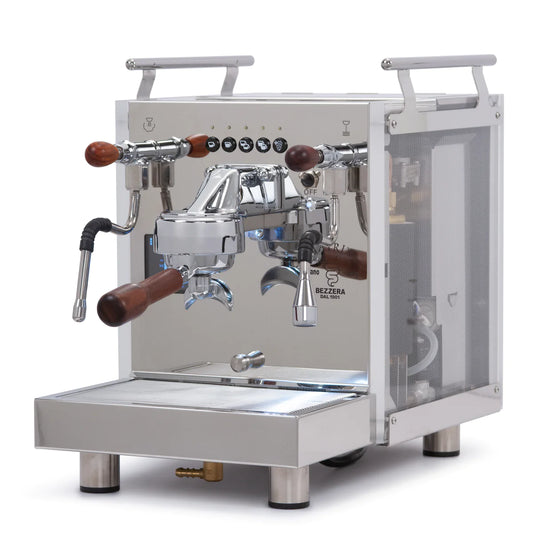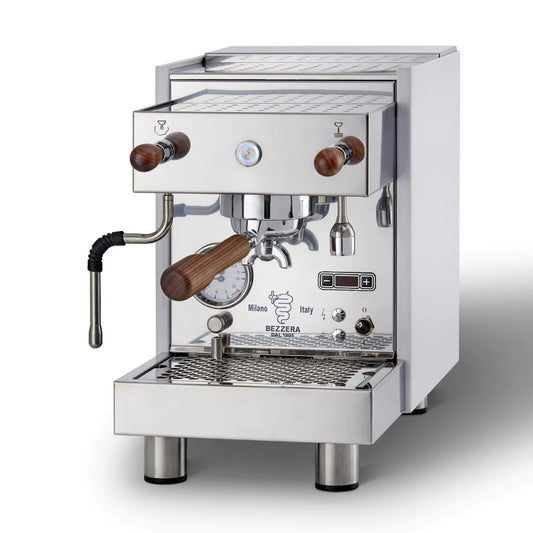The Rising Tide of Global Coffee Industry Mergers and Market Changes
Table of Contents
- Key Highlights:
- Introduction
- Keurig Dr Pepper and JDE Peet’s Merger: A Game-Changer
- Coca-Cola’s Strategic Review of Costa Coffee
- Market Volatility: The Impact of Tariffs and Climate Change
- Innovations in the Coffee Sector
- Industry Events and Competitions
- Company Performance and Economic Context
- Future Trends: Sustainability and Consumer Preferences
Key Highlights:
- Keurig Dr Pepper's monumental $18 billion merger with JDE Peet’s is set to reshape the global coffee market, forming a new entity aimed at challenging Nestlé's dominance.
- Coca-Cola's exploration of strategic options for its Costa Coffee brand raises significant questions about its future in the coffee sector after its $5 billion acquisition in 2018.
- Coffee market volatility is exacerbated by tariffs and climate impacts, influencing pricing and supply chains, while global demand continues to reshape traditional production strategies.
Introduction
As the sun rises over coffee farms around the world, the aroma of brewing beans masks a brewing storm in the global coffee market. With consumers increasingly demanding diverse coffee experiences, recent mergers and strategic shifts among major players are redefining market dynamics. As heavyweights Keurig Dr Pepper and JDE Peet's capitalize on merger synergies to outmaneuver competition, rival Coca-Cola weighs its options for the popular Costa Coffee brand, originally acquired to enhance its market share.
These developments unfold against a backdrop of fluctuating coffee prices driven by tariffs, climate change, and evolving consumer preferences. Stakeholders—from farmers to multinational corporations—are feeling the ripple effects of these changes. The implications of these market maneuvers go beyond corporate boardrooms, impacting supply chains, retail strategies, and ultimately, consumer choices.
Keurig Dr Pepper and JDE Peet’s Merger: A Game-Changer
The coffee landscape witnessed a seismic shift with Keurig Dr Pepper's announcement of an $18 billion merger with JDE Peet's, creating what analysts are calling the Global Coffee Company. This new entity aims to dominate the industry with a staggering projected revenue of $16 billion in worldwide sales. The merger represents a strategic consolidation in the coffee sector, where operational efficiencies—estimated at around $400 million annually—will be sought to enhance profits and streamline operations.
Historically, Nestlé has maintained a solid grip on the packaged coffee market, leveraging its vast resources and extensive distribution networks. The newly formed Global Coffee Co. aims to leverage its combined strengths to compete directly against the Swiss giant. Industry experts note that such mergers are indicative of a broader trend in the coffee market, where scaling up is seen as essential for survival amid rising costs and competitive pressures.
In practical terms, this merger allows both companies to combine their unique strengths. Keurig Dr Pepper’s expertise in single-serve coffee formats complements JDE Peet’s broader market reach and brand portfolio, which includes popular labels like Peet's Coffee and Douwe Egberts. This partnership is likely to yield innovative product offerings that appeal to coffee aficionados and casual drinkers alike.
Coca-Cola’s Strategic Review of Costa Coffee
In stark contrast to Keurig Dr Pepper's aggressive market positioning, Coca-Cola appears to be re-evaluating its strategy with Costa Coffee. Acquired in 2018 for over $5 billion, the brand expanded Coca-Cola’s footprint in the rapidly growing coffee sector. However, shifting consumer trends and market challenges have prompted the beverage giant to engage financial advisors at Lazard to explore potential sale options for Costa.
The rationale behind this potential divestment raises critical questions: Is Coca-Cola stepping back from coffee ambitions, or is it repositioning to adapt to changing market realities? Coca-Cola's foray into the coffee market was initially welcomed as a chance to compete with established coffee brands; however, the rapidly evolving landscape has likely led to strategic recalibrations. With private equity firms already eyeing the brand, stakeholders await indicative bids this autumn that could redefine Costa’s future.
Market Volatility: The Impact of Tariffs and Climate Change
The coffee industry is no stranger to volatility. Increased tariffs, particularly those imposed by the United States on Brazilian coffee categories, have driven up retail coffee prices. Market analyses indicate that domestic prices for roasted coffee in Brazil fell by 12% in August but are projected to rebound due to rising raw bean costs, driven primarily by tariffs and frost impacts on coffee crops.
As Arabica futures surged by approximately 35%, Brazil's domestic market witnessed nearly a 25% jump in raw coffee prices, posing irreversible challenges for local producers. This price spike underscores the complexities of global coffee trade and the intricate relationship between policy decisions and agricultural realities.
Moreover, climate factors are exacerbating these price fluctuations. As climate change impacts continue to affect crop yields and quality, growers are hastily adapting structures to mitigate risks. This situation highlights the importance of sustainability practices and diversification in coffee farming, allowing smallholders to weather market storms more effectively.
Innovations in the Coffee Sector
While market dynamics play a pivotal role in shaping the industry, innovations in coffee technologies and products are also crucial drivers of change. The introduction of advanced espresso machines, such as Breville's Oracle dual-boiler leads a technological renaissance, appealing to both home enthusiasts and professional baristas. Enhanced capabilities for perfecting microfoam and programmable settings are transforming the brewing experience.
In tandem with hardware advancements, sustainable practices and design are becoming focal points for new products. Concepts such as the Chimera, a plastic-free water filter and coffee maker, are hitting the market, resonating with increasingly eco-conscious consumers. As awareness of environmental impacts heightens, coffee producers are exploring holistic approaches that marry quality with sustainability.
Industry Events and Competitions
Events and competitions within the coffee sector not only spark innovation but also foster community and professional development among industry participants. For instance, the upcoming Barista League competition in Montreal is set to gather expert roasters and coffee enthusiasts alike, showcasing skill and creativity in brewing. Events like these not only elevate the craft but also provide platforms for interaction and commerce —essential for nurturing the coffee culture.
Additionally, major conferences such as SCAJ 2025 and the Ljubljana Coffee Festival are on the horizon, promising to engage thousands of attendees through exhibitions, tastings, and panels. These gatherings facilitate knowledge sharing, inspire collaboration, and drive the industry forward by building connections among producers, roasters, and consumers.
Company Performance and Economic Context
The economic pressures within the coffee industry extend beyond mergers and product innovation. Reports indicate that J.M. Smucker, a major player in the coffee segment, has flagged profit misses due to steeply rising input costs driven by tariffs. As green coffee prices continue to escalate, companies across the spectrum are pondering how to implement pricing strategies that will remain competitive while ensuring profitability.
In contrast, firms like the Strauss Group have delivered strong performance reports, driven by effective market strategies and operational efficiencies. This divergence in performance highlights the adaptive capabilities of some companies in navigating challenges, while others struggle to keep pace.
Future Trends: Sustainability and Consumer Preferences
As the coffee market evolves, sustainability is projected to take center stage, not just as a buzzword but as a critical component of business strategy. With consumers increasingly prioritizing ethical sourcing and environmental stewardship, coffee companies are revising policies to meet changing expectations. Transparency in sourcing and contributions to climate-positive initiatives will likely define successful brands in the future.
Furthermore, shifting consumer preferences toward specialty coffee experiences and premium products indicate a market poised for growth. Companies that adapt to these trends, leveraging quality and storytelling in their marketing strategies, will better connect with today's discerning consumers.
FAQ
What is the significance of the Keurig Dr Pepper and JDE Peet’s merger?
The merger intends to create a formidable competitor against industry giants like Nestlé, enhancing operational efficiency and expanding market reach.
Why is Coca-Cola considering selling Costa Coffee?
Coca-Cola is reassessing its strategy within the coffee sector, seeking to align its offerings with evolving consumer demands after substantial investments.
How are tariffs affecting coffee prices?
Tariffs imposed on Brazilian coffee are leading to increased costs for consumers and producers, impacting pricing strategies across segments.
What innovations are emerging in the coffee sector?
Recent advancements include sustainable coffee brewing technologies and eco-friendly product designs aimed at meeting consumer demand for quality and sustainability.
How are events contributing to the coffee industry's evolution?
Industry events provide crucial opportunities for networking, knowledge sharing, and showcasing innovations, fostering community and collaboration among professionals.
In summary, the coffee industry finds itself at a crossroads where mergers and market shifts, driven by both economic realities and consumer preferences, are setting the stage for future developments. As the narrative unfolds, stakeholders will need to navigate this complex landscape, balancing growth ambitions with sustainability imperatives.

